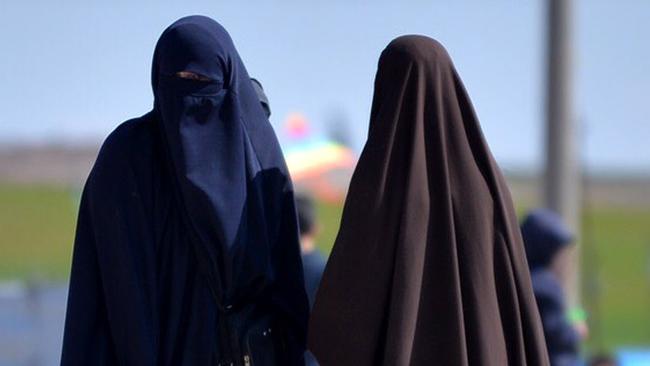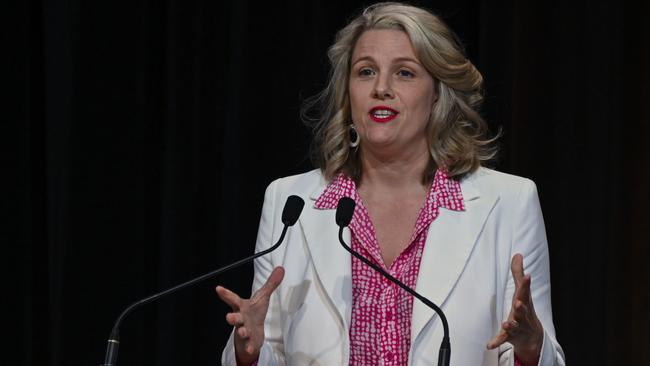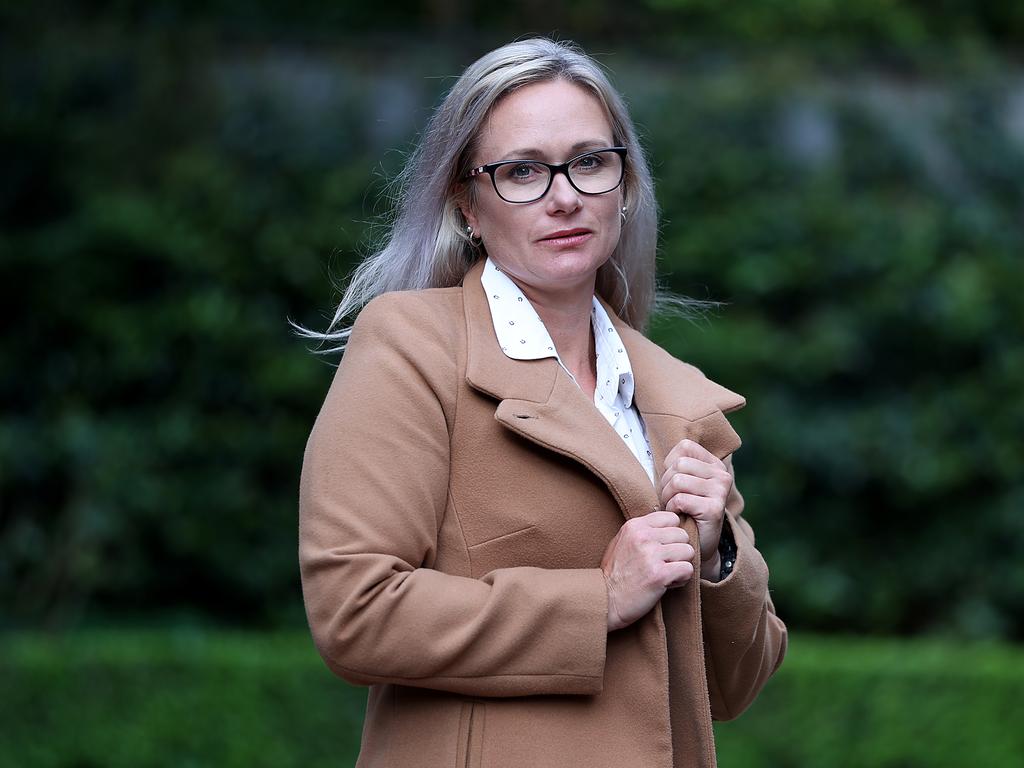Police keep watch on returned low-risk ISIS brides
Four former brides of Islamic State are under police surveillance, were deemed low-risk by ASIO, and have signed legally enforceable agreements to co-operate.

Four former brides of Islamic State brought back to Australia a week ago are under police surveillance, were deemed low-risk by ASIO, and have signed legally enforceable agreements to co-operate with authorities.
Home Affairs Minister Clare O’Neil said she decided to repatriate the women and their 13 children from the secure detention camps in Syria only after they underwent “individual, detailed’’ security assessments.
In her first detailed comments about the families’ repatriation, Ms O’Neil revealed it had been determined it was safer for the children to be raised in Australia, with Australian values, than languish for years in camps where they would come under further influence from ISIS.
She said the children would have retained their right to gain an Australian passport and to enter Australia in the future.
And she indicated she was taking a hardline national security approach to the repatriations, saying her “one concern’’ was for Australian security, and indicating not all the women in the camps would be repatriated.
“In some instances – not in all – it will be in the national security interests of our country for women and children to be returned to Australia. These are tough decisions, they are the right ones for our country’s long-term security,’’ she said.
“Some people will find the humanitarian arguments here compelling. As Home Affairs Minister, I have one concern and that is the domestic security of our country.’’
Her comments came after a week of controversy in which Opposition Leader Peter Dutton and home affairs spokeswoman Karen Andrews continued to warn that the repatriation of the group of 17 women and children posed a dangerous threat to Australia and should not have occurred.
The Coalition, when Mr Dutton was home affairs minister, repatriated two family groups from Syria in 2019, the majority of them orphans, but refused to bring back others over the next three years, despite pleas from national security experts and senior American defence and diplomatic officials, who feared a looming security crisis if women and their children were left in Syria indefinitely.
“The former government chose to bury its head in the sand and pretend that this problem could be safely ignored. It cannot,’’ Ms O’Neil said.
“The children at the heart of this matter are and will remain Australians. There is nothing legally to be done to change that. They will have a permanent right to obtain an Australian passport and re-enter our country.

“The question is whether it is safer for these children to grow up in a squalid camp, without education and health, where violent radical ideology is a part of their daily lives. Or, whether it is safer for them to grow up here, around Australian values.
“Pretending these children don’t exist, and leaving it for the next generation to have to deal with the consequences, is shortsighted and irresponsible.’’
The Weekend Australian has independently confirmed the four women who arrived in Australia last Saturday are being monitored by the Joint Counter Terrorism Taskforce, comprising NSW and Australian Federal Police.
They were designated “low-risk’’ by ASIO, in an assessment made after each woman was interviewed multiple times by intelligence agents in the camps in Syria. They were also deemed the most vulnerable of the group in the camp.
Each woman’s extended family, her acquaintances, her social media footprint, and her past communications were examined.
The women each signed enforceable undertakings while in secure hotel accommodation last weekend, guaranteeing they would take part in NSW’s countering violent extremism programs, and co-operate with authorities.
And police, justice and child welfare officials have been visiting the women’s homes in suburban Sydney in the week since they arrived.
Work is also under way that appears to indicate a court order of some sort, possibly a supervision order, may be sought in the NSW Supreme Court. The women are not expected to be charged with any offence relating to their time in Syria. A terrorism control order is also a possibility, although seems unlikely.
Ms O’Neil refused to comment on any potential legal action that could be taken against the women.
The minister hit out at the “hypocrisy’’ from the opposition, saying repatriation decisions were “serious, significant decisions that our government makes calmly, thoughtfully and methodically, and in the national interest.
“Peter Dutton repatriated citizens three years ago, yet today opposes the exact same decisions. People are sick of this kind of politics,’’ she said.







